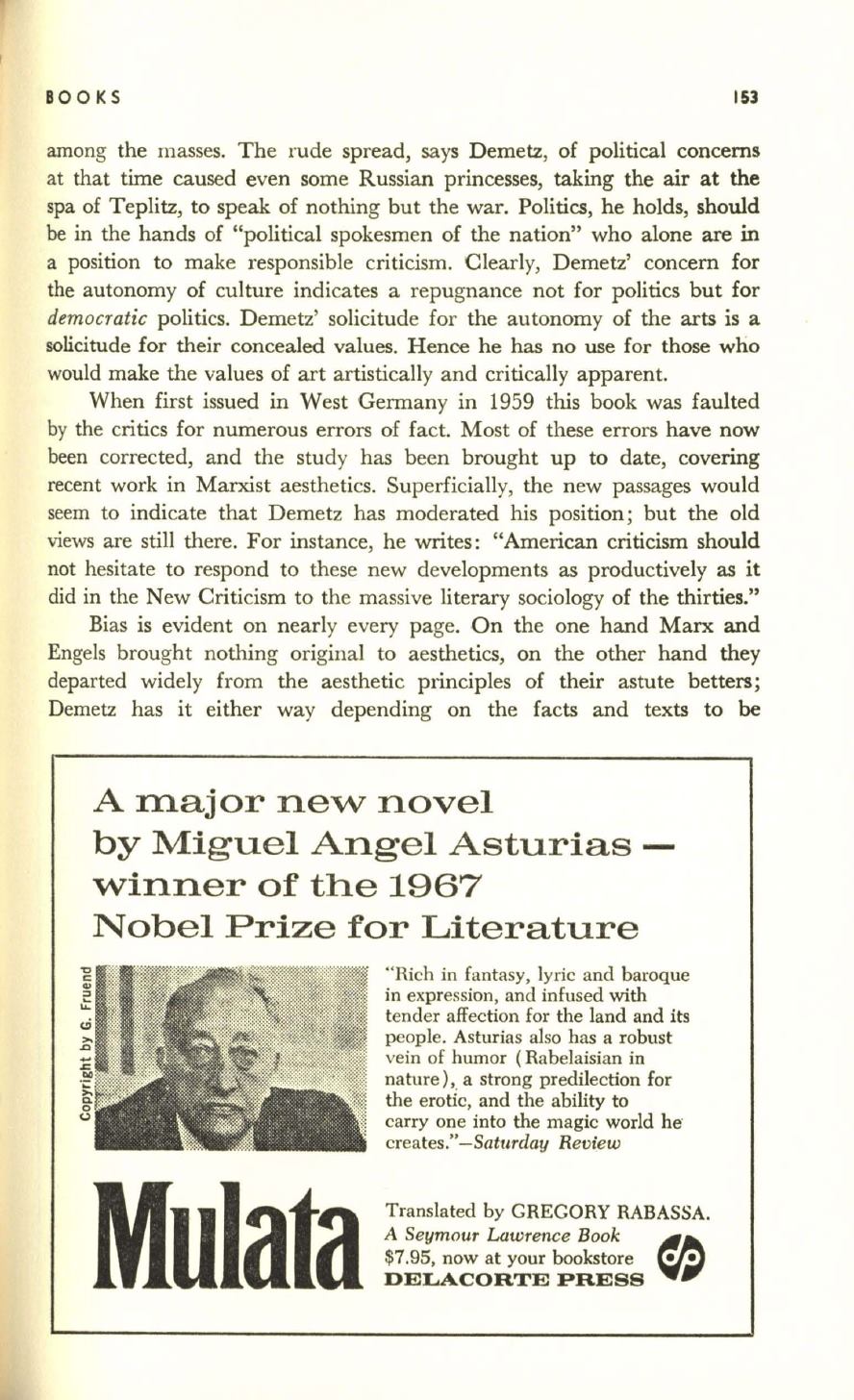
BOOKS
153
among the masses. The rude spread, says Demetz, of political concerns
at that time caused even some Russian princesses, taking the
air
at the
spa of Teplitz, to speak of nothing but the war. Politics, he holds, should
be in the hands of "political spokesmen of the nation" who alone are
in
a position to make responsible criticism. Clearly, Demetz' concern for
the autonomy of culture indicates a repugnance not for politics but for
democratic
politics. Demetz' solicitude for the autonomy of the arts is a
solicitude for their concealed values. Hence he has no use for those who
would make the values of art artistically and critically apparent.
When first issued in West Germany in 1959 this book was faulted
by the critics for numerous errors of fact. Most of these errors have now
been corrected, and the study has been brought up to date, covering
recent work in Marxist aesthetics. Superficially, the new passages would
seem to indicate that Demetz has moderated his position; but the old
views are still there. For instance, he writes: "American criticism should
not hesitate to respond to these new developments as productively as it
did in the New Criticism to the massive literary sociology of the thirties."
Bias is evident on nearly every page. On the one hand Marx and
Engels brought nothing original to aesthetics, on the other hand they
departed widely from the aesthetic principles of their astute betters;
Demetz has it either way depending on the facts and texts to
be
A :major new novel
by
Miguel Angel Asturias -
winner of the 1987
Nobel Prize for Literature
Mulata
··Rich in fantasy, lyric and baroque
in expression, and infused
with
tender affection for the land and its
people. Asturias also has a robust
vein of humor (Rabelaisian in
nature), a strong predilection for
the erotic, and the ability to
carry one into the magic world he
creates."
-Saturday Review
Translated by GREGORY RABASSA.
A
Seymour Lawrence Book
~
$7.95, now at your bookstore
••
DELACORTE PRESS


